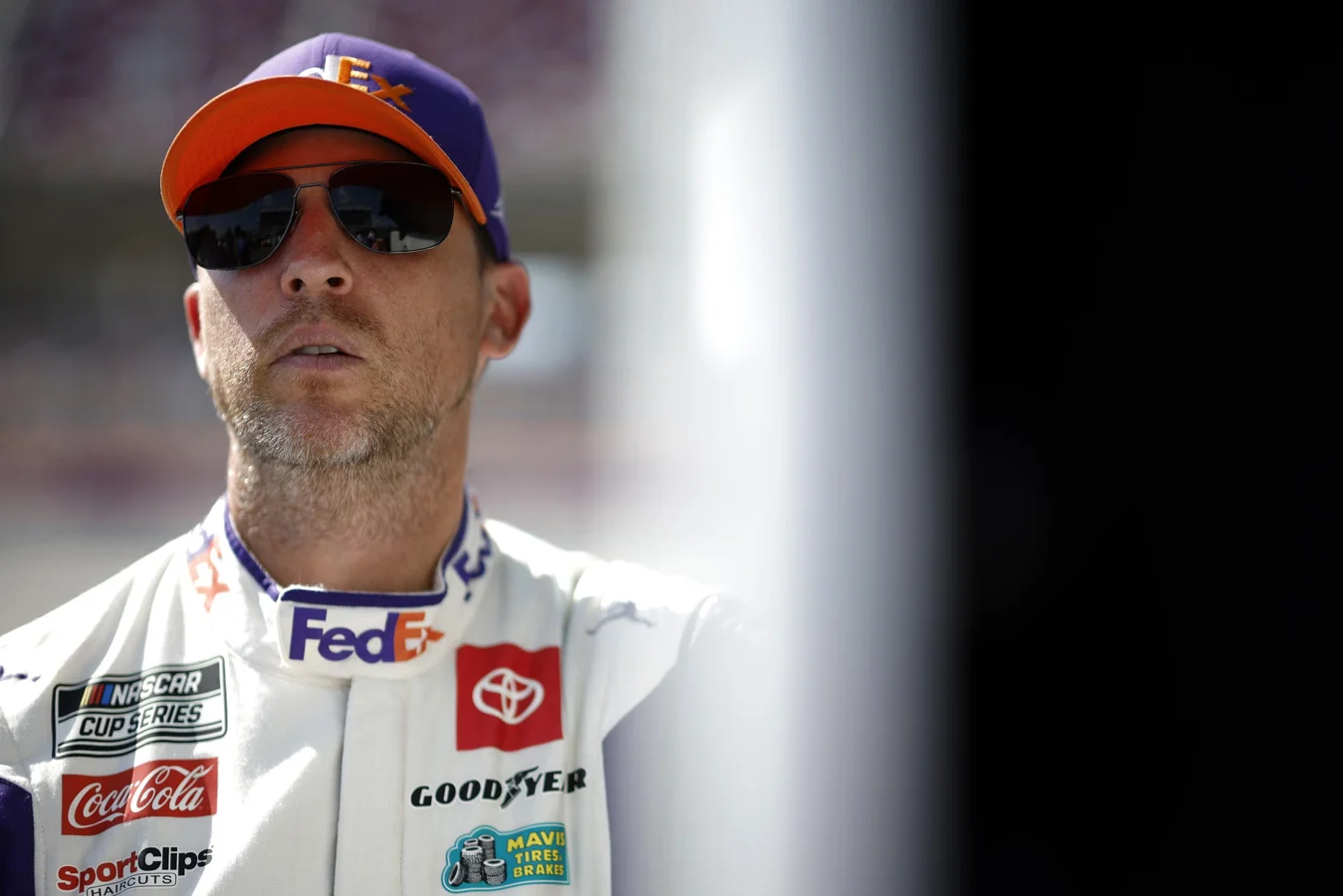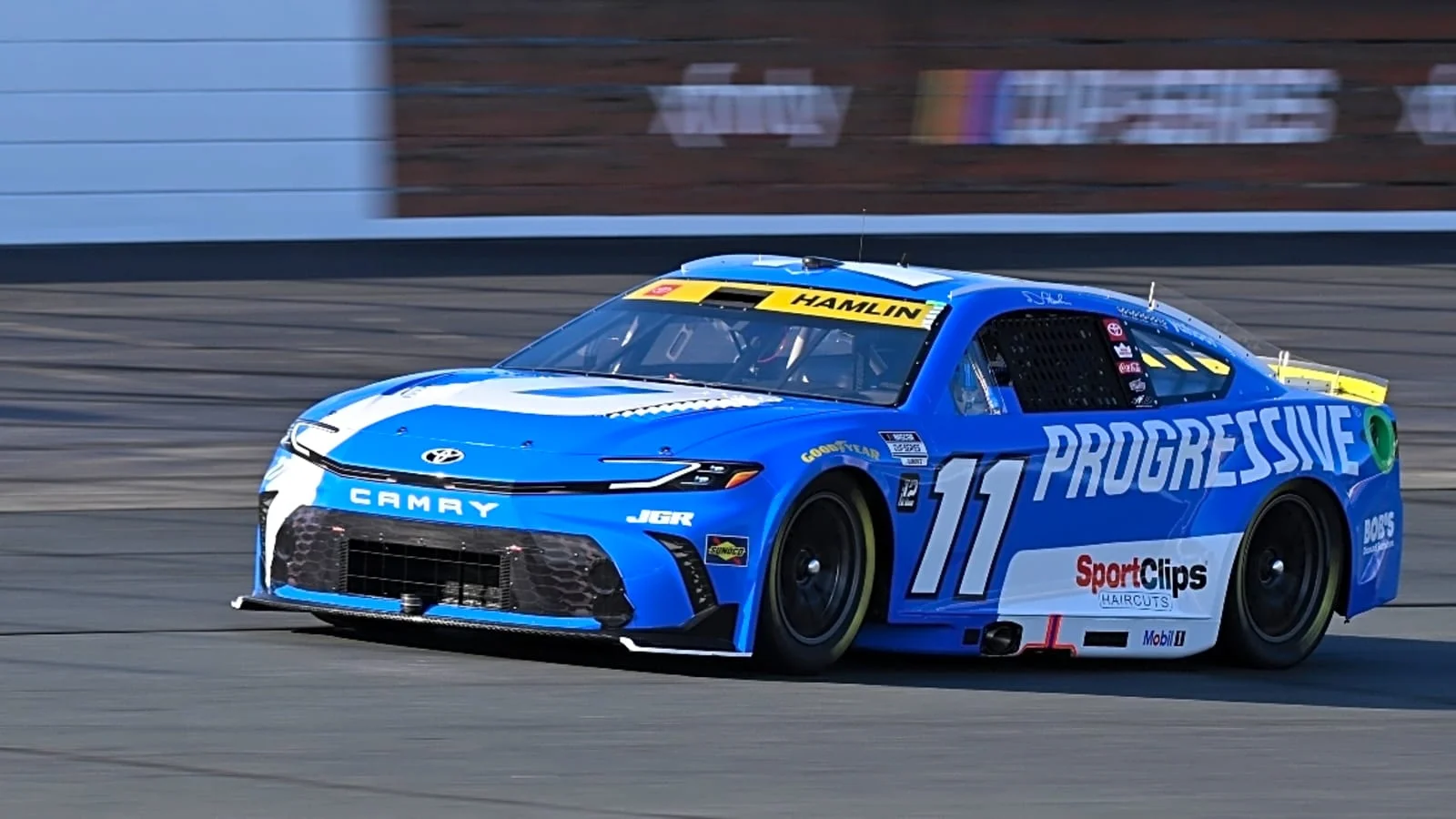The recent NASCAR Cup Series race at New Hampshire Motor Speedway saw tensions reach a boiling point between Denny Hamlin and Ty Gibbs, both drivers for Joe Gibbs Racing. The Denny Hamlin Ty Gibbs incident—notable for its intensity—unfolded during the Mobil 1 301 and has since sparked widespread discussion about team dynamics and management at one of the sport’s most successful organizations.
Hamlin and Gibbs Clash During a Pivotal Race
On Sunday, the Mobil 1 301 became the epicenter for unforeseen drama in the NASCAR world, with several wild incidents that kept fans on edge. The most significant moment arose between veteran driver Denny Hamlin and his younger teammate Ty Gibbs. Seeking his first Cup Series victory after more than three years at this level, Gibbs became entangled in a costly on-track altercation with Hamlin, a driver fighting for the championship alongside Christopher Bell.
Accounts from the race indicate that Hamlin, frustrated by a perceived lack of space provided by Gibbs, retaliated during a critical phase of the competition. The clash resulted in lost ground for Gibbs, further extending his battle to secure that elusive inaugural win in the Cup Series. Christopher Bell, another strong contender from Joe Gibbs Racing, was also affected by the incident as the championship picture evolved.

Team Owner Joe Gibbs Emphasizes Driver Responsibility
Team owner and former NFL Hall of Fame coach Joe Gibbs was swift to address the friction between his drivers. Acknowledging that inter-team rivalries sometimes occur, he made it clear that resolving such disputes should primarily be left to the drivers themselves.
It’s always the drivers that have to handle that. They’re the ones that have got the wheel, and that’s always the case. So that’s what we’ll do. Those guys all are the ones driving the cars, and so those guys will get together on their own and figure it out.
Joe Gibbs said via Fox Sports.
As conversation around the Denny Hamlin Ty Gibbs incident intensified, Joe Gibbs reaffirmed his longstanding position of entrusting drivers to manage their own conflicts, asserting that those directly involved must chart a path forward for the team’s sake.
Denny Hamlin Calls for Leadership Involvement
Denny Hamlin, driver of the No. 11 toyota/”>Toyota Camry and co-owner at Joe Gibbs Racing, spoke candidly about the events during and after the race. While emphasizing the challenging dynamics of racing a teammate, Hamlin suggested that input from upper management would be necessary to move beyond the conflict, especially in a team as high-profile as JGR.
The 54 got back clear of me and the 20, and we ran him right back down, and then just couldn’t get any space to race once we were trying to pass. I don’t know what the whole formula is, but I’m sure Joe and those guys will figure it out.
Denny Hamlin highlighted.
Hamlin’s expectation is that Joe Gibbs and the team’s leadership will soon develop a process to address the current discord, underscoring the importance of clear resolution mechanisms within such a competitive environment.
External Voices Remind of Owner’s Authority
Former crew chief Steve Letarte provided perspective on the situation, noting the unique dynamics when team members are forced to race hard against one another, particularly with a championship at stake. Letarte argued that, despite opinions from across the racing community and beyond, the final word must rest with the team owner, Joe Gibbs. His stance highlights the authority and responsibility Gibbs holds in setting the standard for on-track conduct and off-track resolution.
I think it really comes down to the owner. I think coach has to decide. I think it’s as simple as that. We can talk about Denny Hamlin, we can talk about Ty Gibbs, Jeff and I can give our opinions. Our opinions don’t matter. The opinion that matters is the man who has his name on the building, it’s as simple as that.
Steve Letarte asserted.
This view reinforces the sense that, while input from various stakeholders can inform the decision-making process, ultimately the person leading Joe Gibbs Racing must make the decisive call to resolve intra-team disputes.
Competition Director Chris Gabehart on Team Etiquette
Chris Gabehart, the competition director at Joe Gibbs Racing and former crew chief for Denny Hamlin, offered additional insight following the race. Speaking to the media, Gabehart stressed the importance of team discussions when it comes to playoff racing strategy and inter-driver etiquette. He signaled that clear standards and mutual understanding are essential, especially with the stakes as high as they are late in the season.
According to Gabehart, while drivers should adhere to an expected code of conduct as representatives of Joe Gibbs Racing, there should also be room for real racing competition. He cautioned that overregulating driver interactions could harm the competitive spirit that has made the organization so successful over the years.
I think there’s a reasonable etiquette to follow to where everybody can get what they need out of it. But, you know, at the same time, you can’t create an atmosphere where everybody just has to roll over and play nice all the time either, or you won’t hang as many banners as Joe Gibbs Racing has hung over the years.
Chris Gabehart said.
Gabehart’s comments highlight a delicate balance: ensuring drivers race for the win while also respecting the broader interests of the team as they chase their first championship crown since the 2019 season.
What’s Next for Joe Gibbs Racing?
Looking ahead, the onus falls on Joe Gibbs to address the fallout from the Hamlin-Gibbs clash before it can distract from JGR’s championship ambitions. Ty Gibbs, still seeking his maiden Cup Series win and aiming to shed a winless streak that has lasted over three years, remains under pressure to deliver amid heightened team scrutiny. Denny Hamlin, meanwhile, continues his campaign as both an elite driver and influential presence within the organization.
As the current NASCAR season unfolds and the playoff fight intensifies, the way Joe Gibbs Racing manages internal rivalries and setbacks will play a key role in determining both their title prospects and their ability to foster a cohesive, winning culture. The coming weeks are likely to reveal whether the legendary owner’s hands-off approach can keep his drivers focused on victory, rather than internal drama, solidifying the team’s reputation as a NASCAR powerhouse.
